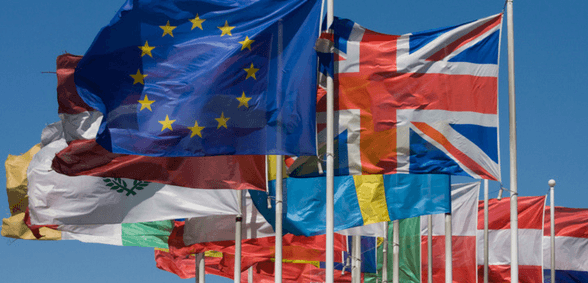
A growing number of EU doctors are now considering leaving the UK, according to the findings of a new BMA study
A survey of more than 1,700 EEA doctors has found that 45% are thinking of moving to another country, while a further 29% remain unsure over whether they will remain in the UK. This is an increase on the findings of a similar survey earlier this year which found that 42% of doctors were thinking of moving, with 23% unsure. The ongoing impacts of Brexit appear to be the primary motivation, with 19% of those doctors considering leaving citing the UK’s decision to exit the EU as their reason for doing so.
The BMA’s new survey comes as the association publishes its latest briefing paper on Brexit which warns that leaving the EU is likely to heap further pressure on the health service, and is calling for a flexible immigration system to be negotiated with the EU.
More than three quarters of respondents said that a negative outcome on citizen rights following the Brexit negotiations would make them more likely to consider leaving the UK, with just 9.5% currently confident of a positive outcome.
Further findings from the survey showed that 15% of doctors said that ongoing uncertainty over their future immigration status was driving their decision to potentially leave.
Following prime minister Theresa May’s speech in Florence in which she called for a two-year transition period following Brexit, the government has since published further details on how EU citizens will be able to apply for settled status.
These include minimising the amount of documentary evidence needed for an application, and ensuring costs be equivalent to applying for a British passport.
The Home Office has also pledged that unsuccessful applicants would be entitled to a statutory right of appeal in line with the rights currently afforded under EU law.
Meanwhile the BMA has continued to lobby ministers on recognising the rights of EEA staff, such as its recent submission to the Migration Advisory Committee which highlighted the importance of overseas staff to the NHS.
Just five per cent of doctors who told the survey they were considering leaving said they felt there would be better opportunities in other countries, with only one per cent saying they would prefer to return to working in their home country.
RCGP reacts
Professor Helen Stokes-Lampard, Chair of the Royal College of GPs, said: “We’re pleased to be standing shoulder to shoulder with colleagues at the BMA in our long-standing calls for a unilateral promise for all EU citizens working in the NHS, that their position will be secure as a result of Brexit negotiations.
“It’s terrible to hear that so many doctors trained in the EU and practising in the UK – 2,137 of them GPs, delivering care to over 3m patients – are making plans to leave as a result of the Brexit vote, but it is not surprising when their future status remains up in the air.
“Doctors and other healthcare professionals make a huge contribution to the NHS – and we are incredibly grateful for the support they give us in general practice to deliver care to over a million people every day. We already have a severe shortage of GPs in the UK and we simply cannot afford to lose these doctors – in fact, the College is further calling for GPs to be added to the Migration Advisory Committee’s shortage occupation list, to make it easier for appropriately trained doctors from overseas to enter our profession.
“The NHS, particularly our health service’s workforce, must be one of the national top priorities during Brexit negotiations. But in the meantime, we need NHS England’s GP Forward View, which promises £2.4bn extra a year for general practice and 5,000 more GPs by 2020, to be implemented in full as a matter of urgency – and we need equivalent pledges to be made and delivered in Scotland, Wales and Northern Ireland.”
Read the BMA’s latest Brexit briefing on workforce and future immigration policy
Don’t forget to follow us on Twitter, or connect with us on LinkedIn!

Be the first to comment